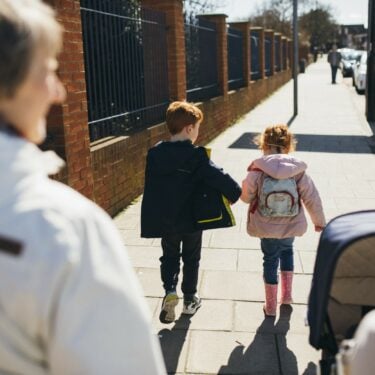Nuffield-funded research by Professor Liz Trinder which showed current divorce legislation leads to unnecessary conflict when marriages end, causing needless pain to families has contributed to the first major reform of divorce law for 50 years.
The change has been driven by our research on how the divorce law in England and Wales works in practice. The Finding Fault project, led by Professor Liz Trinder at the University of Exeter, provided empirical evidence that the current law encourages dishonesty and undermines the aim of the family justice system.
The Finding Fault research directly resulted in new government legislation which will benefit a million families over the next decade through a clearer, fairer and less harmful divorce process.
Making the case for divorce law reform
We launched the 2017 Finding Fault report at a House of Lords reception hosted by Baroness Butler-Sloss, and its call for reform received support from leading members of the judiciary, the legal profession, and many senior parliamentarians. Media coverage of this initial report included a front page story in The Times, which used it as a launchpad for a campaign for wider divorce reform.
To capitalise on this interest, we funded Professor Trinder to work with Baroness Butler-Sloss to draft a Private Members Bill requesting government to review the divorce law and report back to Parliament.
In September 2018 the Ministry of Justice responded with a consultation that drew heavily on both Finding Fault, and a further report, No Contest, which was published by the Foundation in April.
In February 2019 the then Justice Secretary David Gauke confirmed his intent to bring legislation removing the need for separating couples to wait for years or allocate blame for the end of their relationship. In response, we published further reports in the Finding Fault series, including a comparative report on international divorce law.
Ahead of the second reading of the Divorce and Separation Bill in the House of Commons on Tuesday 25 June 2019, we sent a short policy briefing note to all MPs. Our Finding Fault research was referenced during the debate.
On 18 June 2020 the Divorce, Dissolution and Separation bill was passed and the following week was given Royal Assent to become the Divorce, Dissolution and Separation Act 2020.
It is not the case that reform will make divorce easier, or undermine marriage. Currently the law does not protect marriage, but instead makes the process more traumatic for families. The new legislation means there will no longer be needless acrimony and game-playing.”Professor Liz Trinder, University of Exeter Law School

































